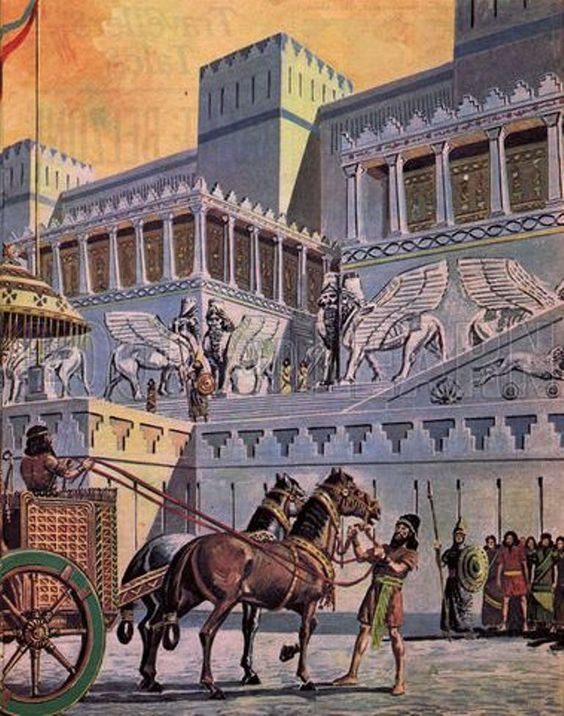convener, or collector.
the name derived from the city Asshur on the Tigris, the original capital of the country, was originally a colony from Babylonia, and was ruled by viceroys from that kingdom. It was a mountainous region lying to the north of Babylonia, extending along the Tigris as far as to the high mountain range of Armenia, the Gordiaean or Carduchian mountains. It was founded in B.C. 1700 under Bel-kap-kapu, and became an independent and a conquering power, and shook off the yoke of its Babylonian masters. It subdued the whole of Northern Asia. The Assyrians were Semites ( Genesis 10:22 ), but in process of time non-Semite tribes mingled with the inhabitants. They were a military people, the "Romans of the East."
Of the early history of the kingdom of Assyria little is positively known. In B.C. 1120 Tiglath-pileser I., the greatest of the Assyrian kings, "crossed the Euphrates, defeated the kings of the Hittites, captured the city of Carchemish, and advanced as far as the shores of the Mediterranean." He may be regarded as the founder of the first Assyrian empire. After this the Assyrians gradually extended their power, subjugating the states of Northern Syria. In the reign of Ahab, king of Israel, Shalmaneser II. marched an army against the Syrian states, whose allied army he encountered and vanquished at Karkar. This led to Ahab's casting off the yoke of Damascus and allying himself with Judah. Some years after this the Assyrian king marched an army against Hazael, king of Damascus. He besieged and took that city. He also brought under tribute Jehu, and the cities of Tyre and Sidon.







